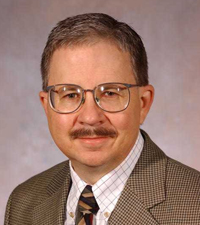 Roger Olson is an evangelical scholar who serves as Professor of Theology at George W. Truett Theological Seminary of Baylor University. Recently he blogged about several unhelpful continuing education experiences in his thirty-one years teaching in higher education. One workshop, focused on communication and teaching, unsettled Olson:
Roger Olson is an evangelical scholar who serves as Professor of Theology at George W. Truett Theological Seminary of Baylor University. Recently he blogged about several unhelpful continuing education experiences in his thirty-one years teaching in higher education. One workshop, focused on communication and teaching, unsettled Olson:
. . . the over riding message left me dazed and confused: “If they have not learned, you have not taught.” Huh? No amount of questioning could get the experts to qualify that. “If they have not learned, you have not taught.” Sorry, that’s wrong. I didn’t learn their message, so they didn’t teach me? What about Jesus? Many of his listeners didn’t learn his message. Did he not teach them? As a teacher for going on 31 years, I can assure you that “If they have not learned, you have not taught” is nonsense. Some students listen and hear the very best presentation of a lesson and still don’t get it. The motto implies that there exists some ideal, even perfect, set of words and method of teaching that guarantees learning. It puts all the responsibility on the teacher. It ignores the reality of dullness, resistance to truth, sloth, sleep.
So What?
As one who has spent most of my career in education and who regularly promotes the need for congregations to engage in evaluation, Olson’s story captured my attention. While the evaluation of a professor’s ability to teach may include student evaluation surveys, it is never limited to such. In the church, however, the evaluation of a teacher’s ability to teach adults is often limited to feedback from students about their experiences. Congregations must strive to supplement this type of evaluation with other tools, including observation by and feedback from seasoned educators.
Neither of the following remarks is appropriate as stated and without further qualification or explanation:
- If they have not learned, you have not taught.
- If they have learned, you have taught.
In your local congregation:
- What does it mean to teach and learn within the context of adult education?
- How is the ability and effectiveness of those teaching adult courses/workshops/etc. measured?
- What resources and professional development/continuing education are provided for those who teach adults?